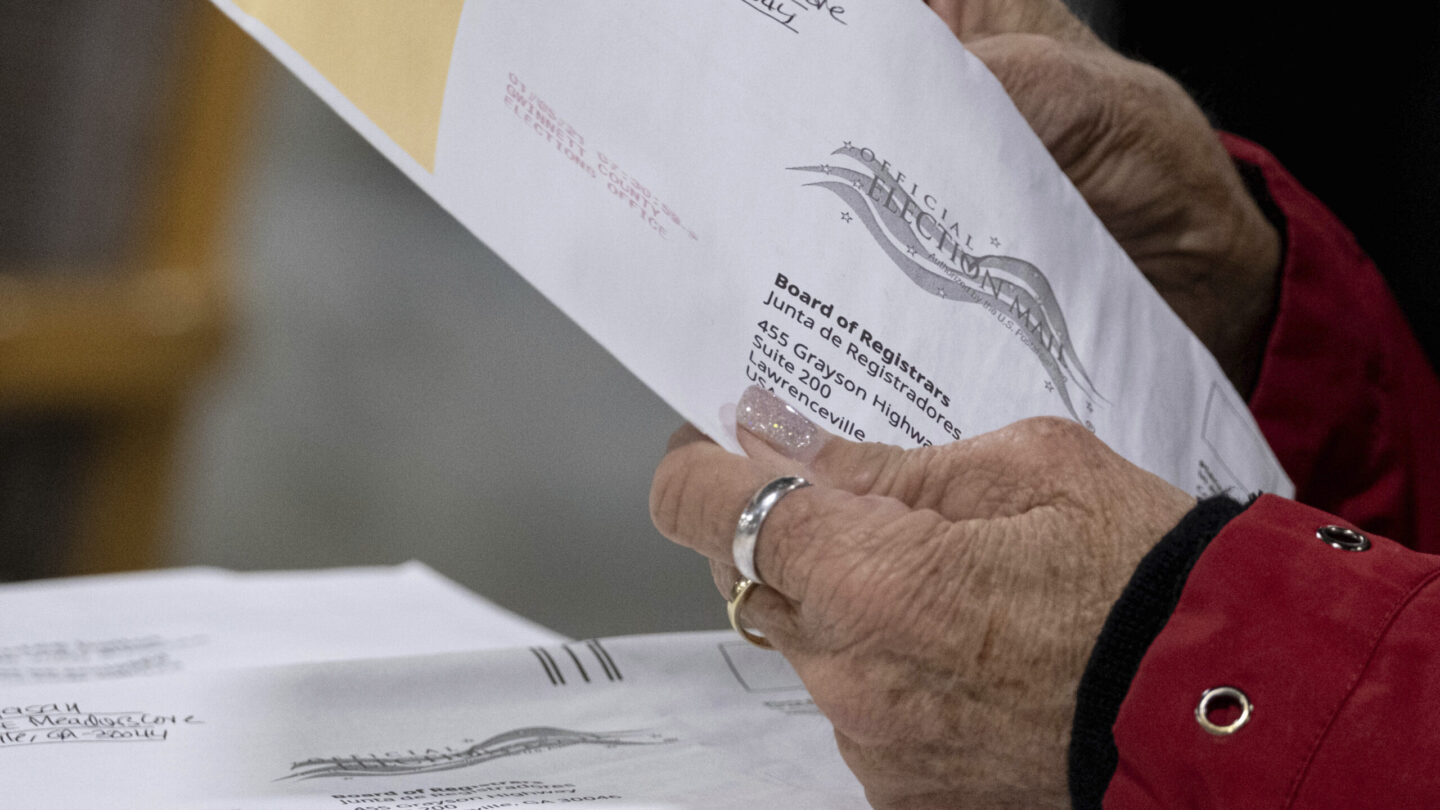This coverage is made possible through Votebeat, a nonpartisan reporting project covering local election integrity and voting access. The article is available for reprint under the terms of Votebeat’s republishing policy.
After Republicans suffered high-profile losses in Georgia’s presidential and Senate races that featured record numbers of early voters and votes cast by mail, many in the GOP expressed support for new restrictions on absentee voting they said would improve security.
That support has not gone away, leading Republican House Speaker David Ralston to form a Special Committee on Election Integrity when the Legislature resumed earlier this month.
“Many Georgians are concerned about the integrity of our election system. Some of those concerns may or may not be well-founded, but there may be others that are,” Ralston said at an event hosted by the Chamber of Commerce last week.
Democrats and voting-rights activists say the changes are in response to false claims and would make it harder to vote.
With many voters staying at home because of the pandemic, more Georgians voted by absentee ballot than ever before this election cycle, including 1.3 million in the November election, one quarter of all votes cast.
Absentee voters favored President Joe Biden 2 to 1, and many Republicans admit it is because of suspicion cast on vote-by-mail by former President Donald Trump.
Gov. Brian Kemp and Secretary of State Brad Raffensperger, both Republicans, weathered severe reproach from Trump and his allies for not contesting the results of Georgia’s elections.
After the presidential election, Kemp joined calls for Raffensperger to conduct a signature audit because of unfounded claims that there were thousands of illegal voters. An audit of the absentee votes in Cobb County, where Raffensperger said his office had received specific allegations of inaccuracy, found their signature match process to be 99.9% accurate.
Even so, Kemp and Raffensperger have both said they will push for getting rid of the signature-match process in favor of some form of photo identification.
“I requested that the Legislature pass a law to move us away from the subjective signature match to identify voters requesting an absentee, to a more objective measure using a unique identifier like a driver’s license number or state ID,” Raffensperger said before the Joint Appropriations Committee on Thursday.
Ralston has also supported the idea of requiring photo identification, although he said he will be hesitant to endorse more drastic changes to the election system without someone making a “strong case” for them.
“I think the level of security should be just the same for an absentee ballot as it is for in-person voting,” Ralston said “I want elections to be open, but I want them to be fair, and I want them to be secure.”
Opponents of additional identification requirements say it’s a question of accessibility. Providing a driver’s license could require access to a computer, printer, scanner and reliable internet. Plus, there are Georgians who simply don’t have a driver’s license, said LaVita Tuff, policy director for Asian Americans Advancing Justice Atlanta.
“Something like voter ID, it really suppresses and suppresses across a number of aisles – the elderly, the low-income, minorities and disabled Georgians, who might lack the necessary papers to even get photo identification to use for absentee voting,” Tuff said.
Tuff pointed out that photo identification for absentee voting was not a major issue before minority communities began using it in large numbers. She also said that additional requirements place an extra burden on voters with limited English proficiency in an already complicated system.
State Sen. Elena Parent is also skeptical of the timing for more restrictions on absentee voting after Democrats saw such gains in that method.
“We aren’t afraid to let people vote, that’s why we support policies that will increase access to the ballot box. We will protect no-excuse absentee voting and block undue ID burdens,” Parent said at a press conference last week.
Parent brought up the issue of inadequate internet access in rural Georgia, a problem that Kemp also acknowledged in his State of the State speech.
She says while there is no evidence of the fraud, she does see examples of voter suppression.
“It comes in the form of precinct closures and ever-increasing hoops of paperwork required to cast a ballot. These barriers don’t prevent fraud, they prevent democracy,” Parent said.
Parent says she could be open to an objective form of identification, as long as it is equally accessible to all voters.
Democrats have had their own complaints about the signature-match process. Changes to a person’s signature over time can lead to erroneous rejections, a problem that has been alleviated somewhat by the ability to cure a challenged ballot.
According to the National Conference on State Legislatures, there are currently five states that require photo identification or other verification, such as a notarized oath, to receive an absentee ballot.
There are still 36 more legislative days this session to see if Georgia will join them.









